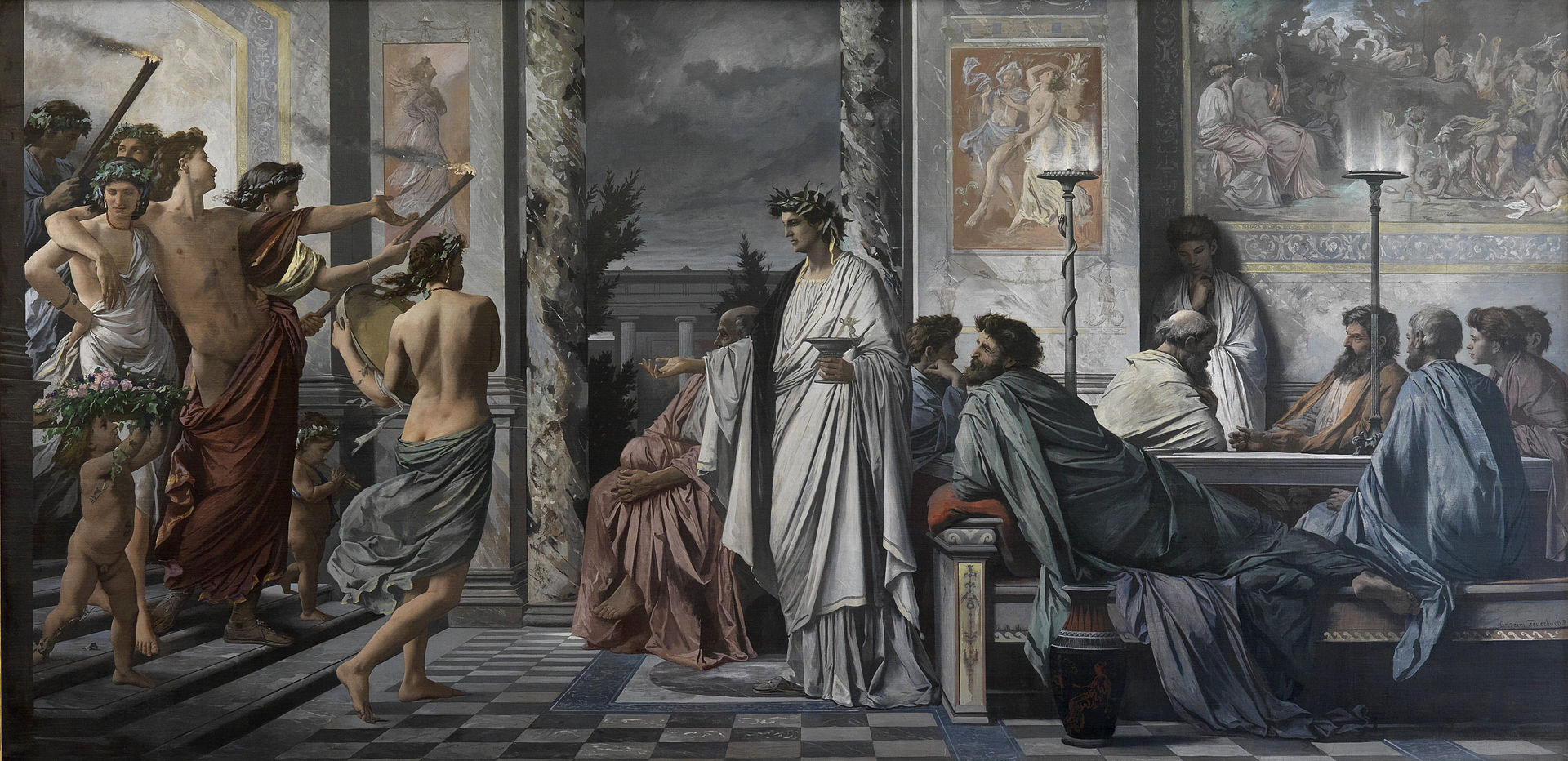
Greek 201 is designed to introduce the student to two of the greatest prose authors of ancient Greece, the philosopher, Plato, and the historian, Thucydides. These two writers set the terms in the disciplines of philosophy and history for millennia, and philosophers and historians today continue to grapple with their ideas and influence.
The Symposium (or Drinking Party) of Plato provides an engaging introduction to the philosophy of Plato in its depiction of Plato’s teacher, Socrates, discussing eros at an Athenian drinking party. The Symposium also reveals Plato’s mastery of the Greek language as he creates the speeches of a number of different individuals, including the famous comic poet Aristophanes and the tragedian Agathon. Particularly memorable is the speech of the brilliant statesman Alcibiades, who crashes the party and provides a drunken eulogy of Socrates before compelling everyone to drink heavily for the rest of the evening.
Alcibiades provides a link between the two texts in this course. The sixth book of Thucydides’ History of the Peloponnesian War is concerned with the beginnings of the Athenian Sicilian expedition, Athens’ greatest disaster in the Peloponnesian War. The Sicilian expedition was urged and undertaken by Alcibiades, and his spectacular downfall and defection during the mission perhaps doomed it to failure. In this course we will examine the ways in which both writers handle the figure of Alcibiades as a point of entry into the comparison of the varying styles and modes of thought of these two great writers. Through this course, students should improve their fluency with standard Attic prose and gain an appreciation of the complexities and nuances of Greek style in the texts of two of the greatest prose writers. Students should also increase their understanding of the cultural context in which these texts were produced, as well as of the scholarly tradition that has engaged with these texts for over two millennia.
The Symposium (or Drinking Party) of Plato provides an engaging introduction to the philosophy of Plato in its depiction of Plato’s teacher, Socrates, discussing eros at an Athenian drinking party. The Symposium also reveals Plato’s mastery of the Greek language as he creates the speeches of a number of different individuals, including the famous comic poet Aristophanes and the tragedian Agathon. Particularly memorable is the speech of the brilliant statesman Alcibiades, who crashes the party and provides a drunken eulogy of Socrates before compelling everyone to drink heavily for the rest of the evening.
Alcibiades provides a link between the two texts in this course. The sixth book of Thucydides’ History of the Peloponnesian War is concerned with the beginnings of the Athenian Sicilian expedition, Athens’ greatest disaster in the Peloponnesian War. The Sicilian expedition was urged and undertaken by Alcibiades, and his spectacular downfall and defection during the mission perhaps doomed it to failure. In this course we will examine the ways in which both writers handle the figure of Alcibiades as a point of entry into the comparison of the varying styles and modes of thought of these two great writers. Through this course, students should improve their fluency with standard Attic prose and gain an appreciation of the complexities and nuances of Greek style in the texts of two of the greatest prose writers. Students should also increase their understanding of the cultural context in which these texts were produced, as well as of the scholarly tradition that has engaged with these texts for over two millennia.
- Instructor of record: Radcliffe Edmonds
